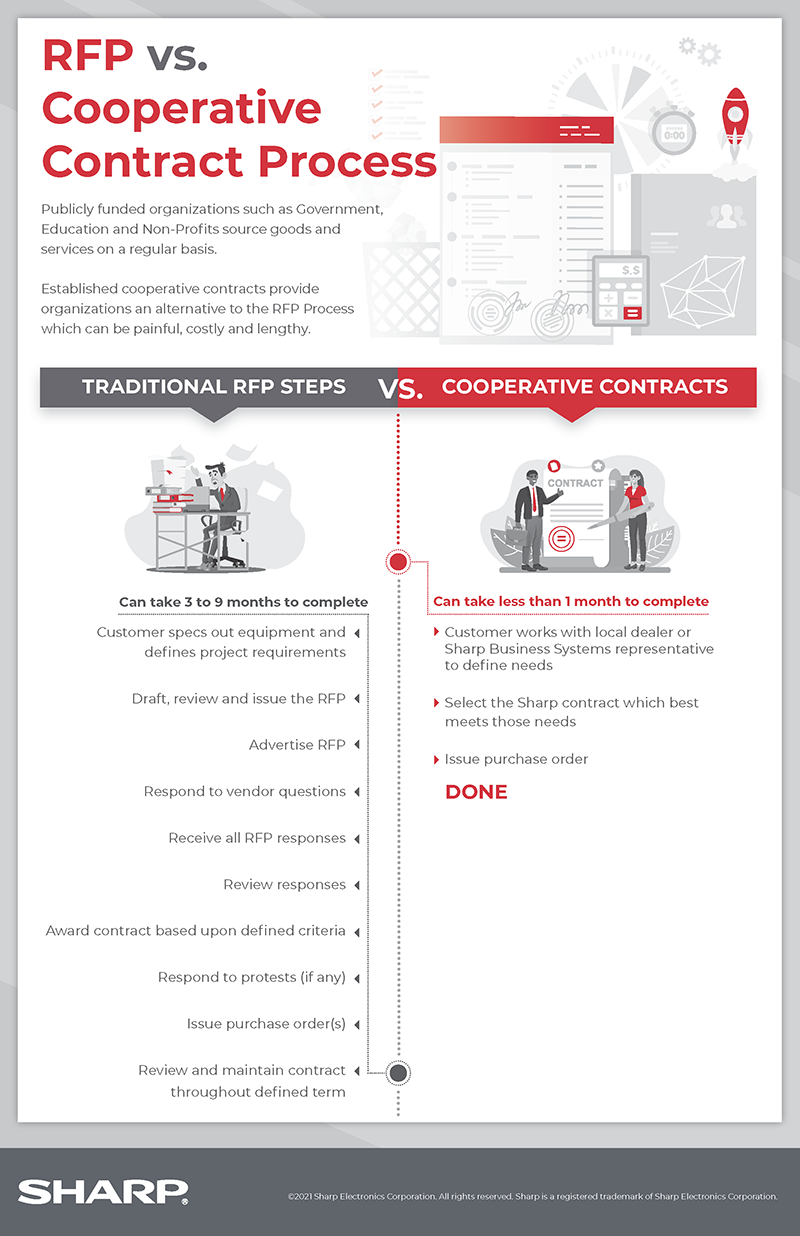RFP vs. Cooperative Contract Process
Publicly funded organizations, such as government, education and non-profits source goods and services on a regular bases. See how established cooperative contracts can provide organizations an alternative to the RFP Process, which can be painful, costly and lengthy.

Text Version
RFP vs. Cooperative Contract Process?
Publicly funded organizations such as Government, Education and Non-Profits source goods and services on a regular basis. Established cooperative contracts provide organizations an alternative to the RFP Process, which can be painful, costly and lengthy.
Traditional RFP Steps versus Cooperative Contracts
Traditional RFP Steps
Can take 3 to 9 months to complete
- Customer specs out equipment and defines project requirements
- Draft, review and issue the RFP
- Advertise RFP
- Respond to vendor questions
- Receive all RFP responses
- Award contract based upon defined criteria
- Respond to protests (if any)
- Issue purchase order(s)
- Review and maintain contract through defined term
Cooperative Contracts
Can take less than 1 month to complete
- Customer works with local dealer or Sharp Business Systems representative to define needs
- Select the Sharp contract which best meets those needs
- Issue purchase order
- DONE